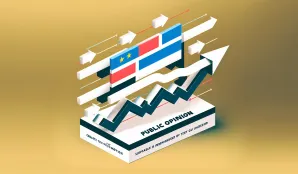Electricity prices Tuesday, 4 Feb 2025
- Articles
- Electricity prices
Electricity Prices in Sweden on February 4, 2025
Today, on February 4, 2025, electricity prices have varied significantly throughout the day. Today's highest electricity price occurred between 08:00 and 08:59 with a price of 1.29 kronor per kWh. During this hour, it costs a total of 77.52 kronor to charge an electric car that consumes 60 kWh. For those planning to take a bath during this time, the cost will be 7.75 kronor, based on a consumption of 6 kWh.
Cheapest Hours Today
For the price-conscious consumer, it is wise to take advantage of the cheapest hours, which today occur between 22:00 and 23:59 with a price of 20 öre per kWh. During these hours, a shower costs only 12 öre, a bath 19 öre, and charging an electric car costs 11.46 kronor. The dishwasher can be run for as little as 4 öre, and playing games on a computer costs just 1 öre.
Electricity Prices in Sweden on February 5, 2025
Tomorrow, on February 5, 2025, electricity prices are expected to be significantly lower for most of the day. The lowest prices will occur between 02:00 and 04:59 with prices as low as 3.19 öre per kWh. During these hours, it is practically free to shower, bathe, charge the car, or play games.
Higher Prices in the Afternoon
Prices rise slightly in the afternoon, peaking between 18:00 and 18:59 with a price of 32 öre per kWh. Despite this, it is still significantly cheaper than today's highest price. Charging an electric car during this time costs 19.22 kronor, which is a considerable difference compared to today's most expensive hour.
Interesting Facts About Electricity Prices
Did you know that if we had the lowest electricity price all year, it would cost 573 kronor to heat a normal-sized house of 160 sqm? This is based on an annual consumption of 18,000 kWh. In contrast, if we had today's highest electricity price all year, the cost would rise to a staggering 23,256 kronor for the same heating.
Tips for Energy Savings
To maximize savings, it is recommended to perform energy-intensive activities such as charging the electric car, washing dishes, and bathing during the cheapest hours. By planning energy consumption, households can save significant amounts on their electricity bills.
Sweden's national debt
-

Opinion Poll Situation Ipsos: Small Movements in January 2026
Sat, 31 Jan 2026 - 19:35 -

Policy rate remains at 1.75% – Riksbank signals stability
Thu, 29 Jan 2026 - 14:02









